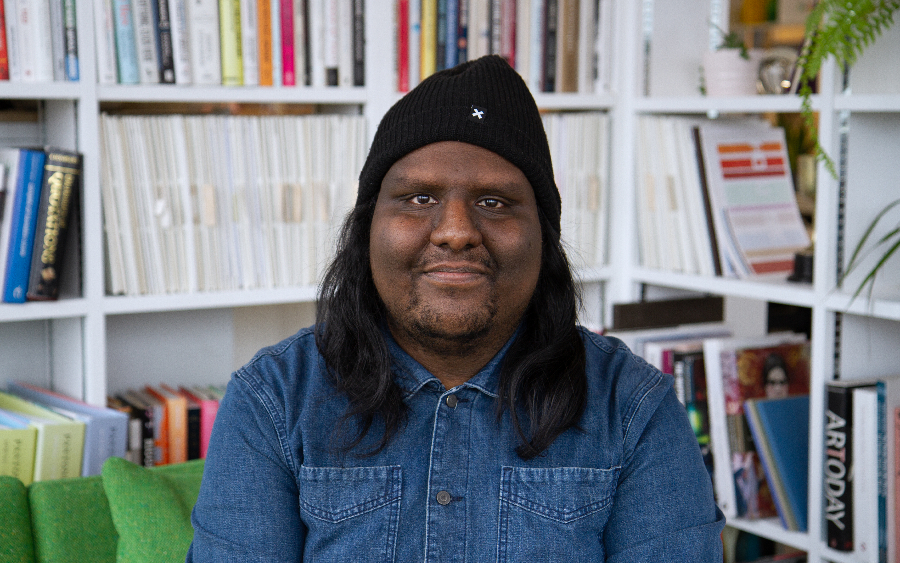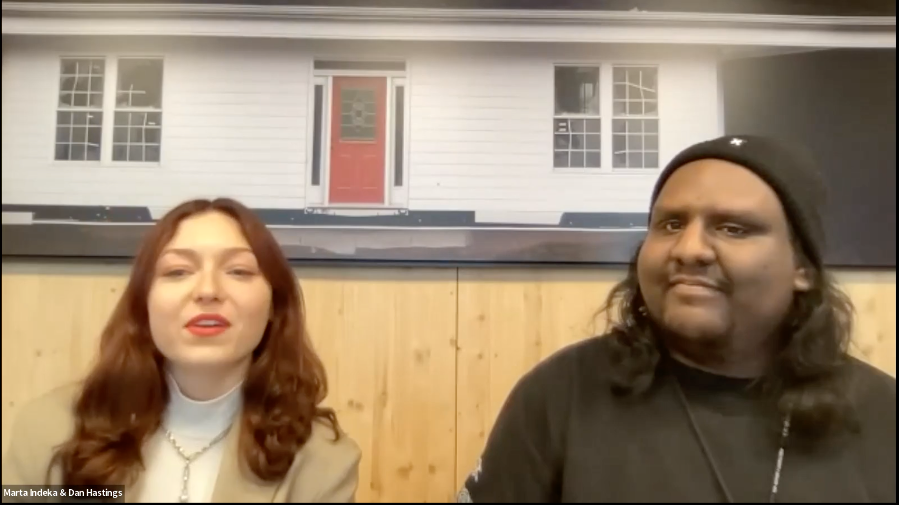30Under30 Honouree: Dan Hastings-Narayanin

Great to hear from our 2023 Global 30-under30 honouree, Dan Hastings-Narayanin!
So, how did you get into the industry, and take us through how you got to this point
I studied journalism in Paris and gathered as much experience and bylines as possible as a digital writer. Between my first internship in a newsroom in 2016 and now, I’ve written everything from fashion show reviews and breaking news on US politics to drag queen interviews, long-form features and even weather forecasts.
While reading the job description for my current role, I realised there was a whole industry where my journalism skills and natural curiosity would be an asset. As a student, I had heard of trend forecasting agencies like WGSN, but I never thought I would be ‘good enough’ to work in such a field without a fashion degree. But I applied anyway, and here I am now researching, writing and editing various daily reports covering everything from the future of cultivated protein to the rise of elephant parenting in the US and lab-grown diamonds in India.

What are you most proud of from your career so far?
I come from the poorest city on the east coast of Reunion Island, a French overseas department, and grew up in a very conservative Hindu family who had a whole career plan for me to become a sugar cane farmer. I rebelled and left to follow my dreams and build my path in Europe without any connections.
English is my second language, and I had to work extremely hard to sound native in writing. Kudos to all my English teachers and editors who helped me reach the next level! Although I still have a French accent after five years spent in London…
My career highlights include getting published in British Vogue three times, curating a selection of Reels for Beyoncé’s Instagram, and winning a journalism award and being sent champagne and a trophy while I was still a broke freelancer chasing invoice payments and stressing out because I had to pay rent (that’s the reality of many journalists).

What two things should junior researchers focus on as they progress in their careers?
The first thing for me is to get as much experience as possible. Earning a degree is great, but it won’t open all the doors anymore – that era is over. I don’t encourage unpaid work, so please research those summer programs and find those internships that most companies now offer as part of their ESG strategies. For instance, at TFL, we are part of the 10,000 Black Interns programme. We also have a one-year graduate program offering full training and swathes of opportunities for a year to an intern who can move from one department to another according to business needs and preferences.

The second thing that will make the difference is attention to detail. Become that person who flags tiny mistakes, misspellings, broken links, wrong email subjects, wrong image sizing or sends calendar invites as soon as someone says: ‘We should talk about it next week’ in a meeting. You will make yourself indispensable, and that’s precisely what we need. I don’t want to see junior team members online at 11pm or working on weekends; this ‘dedication to the role’ does not work anymore. We want efficient people who are reliable and have a balanced life that will protect them from burnout.
What message do you have for anyone considering a career in our sector?
Often, people think being curious and enthusiastic is enough, but everyone I’ve met in this industry is already curious and enthusiastic. I recommend bringing something new to this field because we desperately need new points of view and different stories to remain relevant. Artificial intelligence is already here, and many question the future of market research, insight and foresight. If AI answers in 10 seconds, why should a business pay five figures or more to read a report or attend a workshop? That means we need to develop new ideas, new types of content, and new ways to explain how markets and consumers are evolving.
Do you have any advice for our sector as a whole?
I firmly believe that the disruptors who will keep our industry relevant will be the ones who know how to work with AI, how to look at the African continent and the APAC region without an entitled Westernised gaze and how to talk about sustainability and social justice to businesses and consumers without lecturing them.
And do you have anyone who has helped your career so far that you’d like to acknowledge and say thanks or give a shout out to?
I would not be where I am today without the support of my journalism school’s English teacher, Arpi Chahenian, who told me in 2016 to leave France because my destiny was elsewhere. She was right. I would also like to thank my editor, Fiona Harkin, The Future Lab’s co-founder, Martin Raymond, and our D&I champion, Paige Owusu, for believing in me and giving me this opportunity.